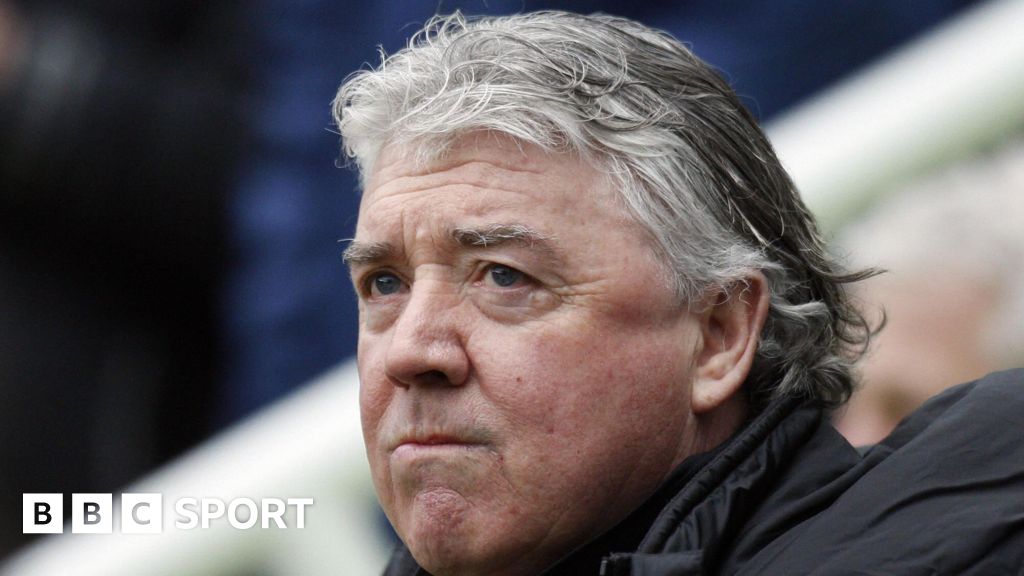Joe Kinnear’s daughter says header contributed to his death

Image source, Getty Images
The daughter of the late former Wimbledon and Newcastle manager Joe Kinnear says she feels “his career (as a footballer) killed him” after revealing an autopsy revealed his brain was affected by dementia believed to have been caused by repeated blows to the head.
Kinnear, who played almost 200 times as a defender for Tottenham Hotspur, was diagnosed with the degenerative brain disease in 2015 and died in April at the age of 77.
His family is among a number of plaintiffs taking legal action against some of the sport’s governing bodies over alleged brain injuries they sustained during their careers.
They decided to donate his brain to a study investigating a possible link between dementia and a career in professional football.
And they have now confirmed that he has been diagnosed with chronic traumatic encephalopathy (CTE) – a form of dementia – by Dr Willie Stewart, a neuropathologist at Queen Elizabeth University Hospital in Glasgow.
“Dr Stewart told me that CTE was the cause of his dementia and death,” Kinnear’s daughter Russ Doffman told BBC Sport.
“He was a defender, so it came from the header… (The autopsy) gives you closure, but when you think about it, it just makes us angry again because I feel like his career has ruined him.
“We learned a lot, but were not surprised by the result. It gives you clarity.”
Doffman said she had spoken to her mother about donating her father’s brain after hearing about the son of former England international and Manchester United player Nobby Stiles, who also suffered from dementia and died in 2020. John Stiles had allowed Stewart to examine his father’s brain and received a similar diagnosis.
“I knew Mom would have wanted this. She didn’t even hesitate, and I think Joe definitely would have wanted it too,” Doffman said.
“If I hadn’t spoken to John about donating his father’s brain, I wouldn’t have known about it. We want to help other families and support medical research.”
The autopsy report of Kinnear’s brain, which his family provided to the BBC, contained detailed findings that were “fully consistent with the pathognomonic lesion of chronic traumatic encephalopathy with neuropathological changes (CTE-NC)” – a disease that can only be diagnosed after a person’s death.
“To date, the only documented risk factor … is exposure to repetitive head impacts and/or traumatic brain injury … CTE-NC is increasingly being documented in former athletes from numerous contact sports, including football … with risk highest in defensive linemen and those with the longest playing careers (over 15 years).”
It concluded that his “long history of participation in soccer as a defender, with a clinical presentation characterized by striking behavioral changes followed by progressive cognitive decline, is entirely consistent with the finding of extensive CTE-NC pathology at autopsy and an integrated diagnosis of CTE.”
The autopsy report is expected to form part of the plaintiffs’ arguments in their ongoing court case. The plaintiffs claim that the defendants – football’s legislative body Ifab, the Football Association, the English Football League and the Welsh Football Association – were negligent by failing to take reasonable steps to protect the players from permanent injuries caused by repeated concussive and subconcussive blows.
Football’s governing bodies have previously said they cannot comment on ongoing legal proceedings but that the welfare of players is of paramount importance to them. The FA has said it plays a “leading role in reviewing and improving the safety” of football and is supporting “several projects to gain a better understanding of this area through objective, robust and thorough research”.



